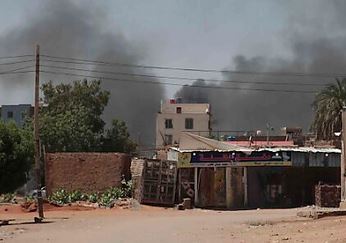Sudan War: Violation of fundamental rights

According to a recent research by the International Food Policy Research Institute (IFPRI), the sudan conflict has pushed 8-10% of the population into poverty (3-4 million people) and 4-6% into hunger (1-2 million people) since 2023.
Recent attacks by Republican Security Forces (RSF) forces have been increasingly accompanied by mass killings of civilians, along with looting valuables, including gold, cars, and stored agricultural products. Members of RSF opened fire on the village of Wad al-Nourah, using heavy weapons, from a distance of about one kilometer. This is while, like many other villages, the residents mainly work in agriculture and trade, never carrying weapons and seeking to survive in the middle of unrest.
At least 100 civilians were killed in one day in the attack on the Sudanese village of Wad al-Nourah, according to estimates by volunteers of the local resistance committee. During the four-hour bombardment, many houses were destroyed, leaving terrified children, women and the elderly helpless to escape.
The alleged number of deaths in this incident would make it one of the deadliest events involving civilians since the war between the army and the RSF began in April 2023. Since security forces took control of the region late last year, villages have been hit by one act of violence after another, facing war crimes such as killings, looting, rape, and burning of villages under the title of dealing with « undisciplined » people.
According to UN reports, the war in Sudan has killed 14,000 people and forced nearly two million to flee their homes since April last year, when Sudan was plunged into disarray after its army and a powerful paramilitary group began a bitter struggle for power. The fighting has also left around half of the country’s population facing acute hunger. Sudan is also dealing with multiple disease outbreaks, including cholera.
Cities have been reduced to rubble and entire communities displaced. Sudan is now the site of one of the world’s worst humanitarian crises. According to UN experts, around 25 million people, making up around half of Sudan’s population before the war, are in need of urgent assistance. Nearly 9 million people are internally displaced, among them about 4 million children. Another 20 million children are out of school. Over half the population of 49.6 million doesn’t have access to healthcare.
In addition, the ongoing war has led to severe food insecurity, which is spreading across the country. The conflict has disrupted agricultural activity, limited access to markets, and led to high food prices. An estimated 40% of farming households haven’t been able to till their land because of insecurity. Further straining food supplies are displaced populations seeking refuge in regions where resources are already scarce. Agriculture is the backbone of the Sudanese economy, the loss of which not only deepens Sudan’s humanitarian crisis but also threatens the future stability of the nation.
According to a recent research by the International Food Policy Research Institute (IFPRI), the conflict has pushed 8-10% of the population into poverty (3-4 million people) and 4-6% into hunger (1-2 million people) since 2023. As highlighted by the study, without action, recovery will be slow, and all households will be adversely affected, with the poor experiencing the largest percentage drop in consumption.
There doesn’t appear to be an end to the conflict any time soon. International cooperation is needed to deliver civilian protection, scale up humanitarian assistance, leverage the influence of regional actors, and give Sudanese civilians a role in the peace process.
References
www.bbc.com/news/articles/cm2n2r5395lo
www.bbc.com/afrique/articles/c8dpd386yj1o
www.africanews.com/2024/09/23/un-voices-concern-about-reports-of-rsf-assault-on-el-fasher-urges-ceasefire-across-sudan/
theconversation.com/sudan-is-the-worlds-worst-modern-war-what-has-happened-and-what-itll-take-to-rebuild-237876
www.cgspace.cgiar.org/server/api/core/bitstreams/9da81dd5-379c-4ed4-b310-c6db6e3053a9/content

